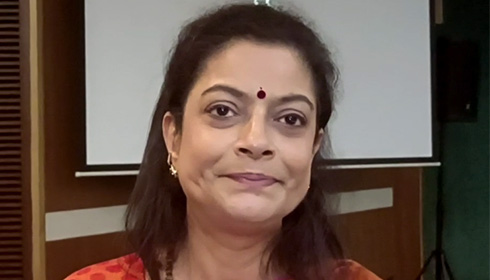
Dementia: A Growing Public Health Epidemic
Dementia is no longer just a condition affecting a small section of the elderly—it is now emerging as a widespread public health epidemic, one that poses significant challenges to healthcare systems worldwide.
As the global population ages, the prevalence of dementia is increasing at an alarming rate, particularly in countries like India, where healthcare infrastructure is already under pressure. The number of elderly individuals diagnosed with dementia is expected to rise exponentially in the coming decades, making it imperative for both policymakers and the general public to recognize the scale of this problem.
This epidemic not only impacts the individuals suffering from cognitive decline but also places an immense burden on families, caregivers, and the healthcare system as a whole. The need for early diagnosis, effective treatment strategies, and preventive measures has never been more urgent.
Dementia is a multifaceted condition, often misunderstood and misdiagnosed, which further complicates efforts to manage it. Addressing this issue requires both a scientific understanding of the disease and public awareness about how to reduce risk factors.
In an exclusive interview with Drug Today Medical Times, Prof. Manjari Tripathi, Head of the Department of Neurology at AIIMS, Delhi, delves into the complexities of dementia, its causes, early symptoms, and the steps we can take to manage and potentially prevent it. Prof. Tripathi, a leading expert in neurology, sheds light on why dementia should be considered a priority for public health in India and beyond, offering invaluable insights into this growing crisis.
DTMT: Could you explain what dementia is, and how it differs from normal memory loss that occurs with aging?
Prof. Tripathi: Dementia is more than just the memory decline that many experience as they grow older. It’s a progressive condition, with Alzheimer’s disease being the most responsible for dementia.
Early on, people may notice subtle issues—like losing their way in familiar places, struggling to manage their finances, or finding it hard to plan and make decisions. These problems start to interfere with daily life. Over time, patients become more dependent on their caregivers, whether that's a family member or a relative. In its advanced stages, dementia can leave individuals bedridden, fully reliant on others for basic care, including hygiene.
DTMT: What are the leading causes of dementia, and who is most at risk?
Prof. Tripathi: Alzheimer's disease is the most common cause, but it's not the only one. Dementia can also develop after multiple strokes, or as a result of Parkinson’s disease. Even deficiencies, like low levels of certain vitamins, or brain injuries—such as bleeding—can trigger it.
As people age, it’s crucial to monitor more than just blood pressure. Memory should also be checked regularly after the age of 40. If any signs of memory decline are detected, further testing is necessary. If results show a marked decrease in memory function, timely intervention is essential to manage the condition.
DTMT: What proactive steps can individuals take to reduce their risk of developing dementia?
Prof. Tripathi: There are several preventive measures that can significantly lower the risk of dementia. Avoiding alcohol and smoking, controlling diabetes and hypertension, and maintaining a healthy weight are key factors. Staying physically active is just as important as eating a balanced diet rich in vegetables, sprouts, mustard oil, and olive oil.
Equally vital is keeping your brain engaged—whether it’s through solving puzzles, playing Sudoku, or learning new languages. Staying socially active, interacting with family, dancing, cycling, or even playing with children can also go a long way in keeping both the mind and body healthy.
DTMT: When should someone consider getting their memory tested, and how is this done?
Prof. Tripathi: If memory loss is suspected, a detailed history—spanning around 10 years—should be provided by the patient’s attendant or family member. This historical information is critical for an accurate diagnosis.
In addition, a neuropsychological or memory test should be conducted. These tests help pinpoint which specific cognitive functions, such as thinking, planning, or calculating, are being affected. Further diagnostic tools, like PET or MRI brain scans, are also utilised to confirm the presence of dementia and its underlying cause.
DTMT: What early warning signs of dementia should people be aware of?
Prof. Tripathi: The earliest signs usually involve a decline in short-term memory. People may start forgetting recent events or conversations, misplacing items, or becoming disoriented in places that were once familiar to them. Long-term memory tends to fade later on as the condition progresses. Recognizing these early signs is crucial for timely intervention and management.
DTMT: How widespread is dementia in India, and how many people are currently living with the condition?
Prof. Tripathi: It is estimated that around three million people in India are living with dementia. However, this figure is likely much higher because many cases go undiagnosed. The stigma surrounding mental health and the lack of awareness about dementia often lead to delays in seeking medical attention.
DTMT: Is dementia curable, or is it a condition that can only be managed?
Prof. Tripathi: Unfortunately, dementia is not curable. However, it can be managed to some extent. Few diseases are truly curable—apart from infections like tuberculosis or typhoid. For most chronic conditions, including dementia, the focus is on managing symptoms and improving the quality of life rather than offering a complete cure.
DTMT: What treatment options are available for dementia patients?
Prof. Tripathi: A range of treatment options are available to help manage dementia. These include medications that can slow down the progression of symptoms, physical therapies to maintain mobility and functionality, as well as a combination of modern medical treatments and traditional interventions. Early diagnosis plays a critical role in making these treatments as effective as possible, helping patients maintain a higher quality of life for longer.